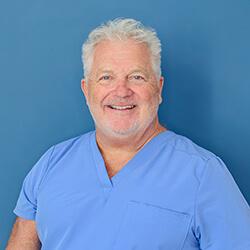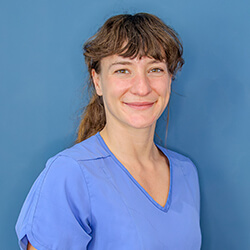
Vertigo, also known as benign paroxysmal positional vertigo (BPPV) is a symptom rather than a condition itself.
When you alter position or turn in bed, it creates the sudden sensation that you or your surroundings are spinning, tilting, or moving, and can trigger episodes of intense dizziness. These episodes may last only seconds, or they can continue for hours or even days.
At The House Clinics, Bristol, our skilled Chiropractors are experienced in diagnosing and treating BPPV, helping to reduce dizziness and restore balance.
BPPV is the cause of over 50% of vertigo and dizziness cases. Inside the ear, tiny crystals called canoliths exist within the otolith organs inner ear. They normally help detect gravity and head movement. Sometimes these crystals become dislodged and move into the semicircular canals, making you overly sensitive to head position changes.
Episodes of vertigo are triggered by sudden head movements, getting out of bed, looking over your shoulder while driving, or tipping your head up or down. BPPV is not dangerous, but it is often undiagnosed. It becomes more common with age and common in females.
The House Clinics Bristol specialise in treating BBPV, treatment is directed at removing the canals the inner area of the ear. The Epley Manoeuvre is the most commonly used. Jonathan has developed the Cook Vibratory Manoeuvre and also performes the Epley Manoeuvre very successful.
The dizziness occurs due to a breakdown in the neural connections between the eye, ear, brain and head position as a result of this Jonathan also provides treatment to the upper neck 90% cases the jaw joint TMJ 20% of cases. He also reccomends, rehabilitaion excersises, using a laser pointer to reducate the eyes, in repositioning of the head, using the guided laser beam.
Neck joint dysfunction in the cervical spine can also cause vertigo/dizziness, particularly with neck pain or after an injury, post-surgery changes. The muscles and joints of the neck contain receptors that send signals about head movement and orientation to the brain and vestibular/balance system. When these receptors are disrupted, the brain receives incorrect signals, leading to dizziness and balance problems.
Neck related vertigo symptoms can include: dizziness, unsteadiness, and sometimes accompanying neck stiffness or pain.
The House Clinics, Bristol Chiropractors and Physiotherapists can treat neck-related vertigo with a combination of hands-on therapy, spinal mobilisation, and targeted exercises to restore normal function and improve communication between the neck and balance system.
High stress levels can cause the neck and shoulder muscles to tighten so much that receptors send incorrect signals to the vestibular and balance system. This miscommunication can trigger dizziness and a sensation of vertigo.
Stress related vertigo symptoms can include dizziness and imbalance are often worse during stressful periods, sometimes accompanied by muscle tightness or headaches.
Stress related vertigo treatment at The House Clinics includes Physiotherapy, Chiropractic adjustments, Massage Therapy, and relaxation techniques to release muscle tension and restore balance.
Up to 30% of people with migraines also experience vertigo as part of the aura. In many cases, dizziness or vertigo can be an early warning sign before other migraine symptoms such as visual disturbances, light sensitivity, or nausea appear.
Migraine associated vertigo symptoms can include: spinning sensations, light-headedness, and disorientation occurring with or before a migraine episode.
The House Clinics Bristol, help patients manage migraine-related vertigo through Physiotherapy, Chiropractic care, and lifestyle advice. By addressing stress, posture, and neck function, we can reduce both the frequency and severity of attacks.
Labyrinthitis is a viral infection that affects the vestibular nerve, often following a cold, sore throat, or flu. This inflammation disrupts the ear’s ability to send accurate balance signals to the brain.
Inner ear infection symptoms include, sudden vertigo, dizziness, and imbalance, often accompanied by hearing changes, nausea, or fatigue. Symptoms usually pass within a week or two.
The House Clinics Bristol, treat inner ear infection. While labyrinthitis often resolves on its own, chiropractic and physiotherapy and vestibular rehabilitation can help speed recovery and manage any lingering dizziness.
If you’re suffering from Vertigo, BPPV & Dizziness, don’t wait. Book your consultation today and start your recovery with our expert team.
The most effective treatment is a vibratory manoeuvre which rotates the head to the side of dizziness and then rotates to the opposite side whilst vibrating the head it takes approximately two minutes, The House Clinics sometimes use the Epply manoeuvre.
In about 90% of cases there is also some upper neck joint dysfunction and 20% of cases chore joint or TMJ dysfunction which I would correct before performing the manoeuvre. We also recommend a rehab rehabilitation exercise program to rehabilitate the balance mechanism
It depends on your response to Treatment, but I have never treated anyone more than six times and the average is three visits. As soon as the symptoms go away, you stop treatment and provide the rehabilitation program.


Secure your appointments instantly or get tailored advice from a practitioner before booking, we’ll call you back at a time that suits you
Book Online